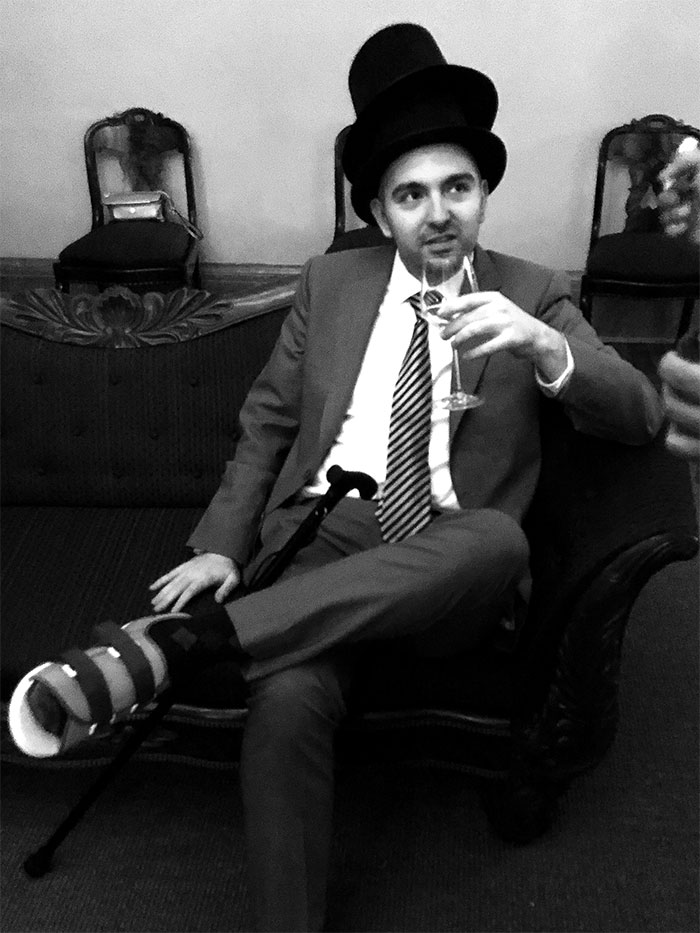Space-Shifting Ruling Hampers Fair Use
Last month, Judge Richard Posner called on Congress and the courts to reform our broken copyright system. One of the most severe problems, he noted, is our increasingly narrow understanding of what constitutes the “fair use” of copyrighted works without a license. The boundaries of fair use have always been tricky to navigate, but as Judge Posner argues, it is “not widely recognized . . . that a narrow interpretation of fair use can have very damaging effects on creativity.”
The fundamental problem is a failure to understand what the purpose of copyright protection is. According to Kevin Smith, who answers copyright questions at Duke University, content industries now assert that “copyright exists to support their businesses, so any new way they find to extract a little extra money from the rights they hold should be endorsed and protected by the courts.” In a recent essay, John Mellancamp bemoans how the internet has ruined artists’ “gravy train” that permitted a song writer to depend on income from “one or two hit records 10 or 50 years ago.” But copyright was never intended to serve as welfare to artists; instead, the aim of the Copyright Clause is simply “[t]o promote the Progress of Science and useful Arts.”
In short, the copyright monopoly is intended to be limited. It presents no affirmative obligation to protect future potential revenue streams that exist solely for the benefit of content industries. Fair use exceptions are essential to ensure that our copyright regime can produce the wider public benefits for which it is designed. Unfortunately, while the boundaries of fair use remain often untested or ignored, copyright law remains beholden to restrictive and cumbersome rules established by the Digital Millennium Copyright Act.
Passed in 1998, the law has become an albatross on the larger body of copyright law. Case in point: the Library of Congress’ triennial review of 17 USC § 1201(a)(1)(A). In a misguided effort to combat piracy, the DMCA broadly prohibits efforts to “circumvent” digital rights management schemes. However, Section 1201(a)(1)(C) directs the Librarian of Congress and its Register of Copyrights to evaluate whether circumvention limitations adversely restricts the ability of individuals to make non-infringing uses of copyrighted works. It provides for public comment and review every three years.
In October, the fifth triennial review produced a new series of five exemptions to the DMCA’s circumvention prohibition:
[quote author=”Author” style=”normal” color=”#000000″] For the next three years, you’ll be allowed to jailbreak smartphones but not tablet computers. You’ll be able to unlock phones purchased before January 2013 but not phones purchased after that. It will be legal to rip DVDs to use an excerpt in a documentary, but not to play it on your iPad. [/quote]
“None of these distinctions makes very much sense,” Ars Technica’s Timothy Lee concludes. While the schizophrenic rules on jailbreaking and unlocking smartphones drew the most headlines, it is the final exemption – DVD-ripping – that demonstrates how absurd and arbitrary the current process is.
DVD-ripping, like CD-burning, facilitates what is termed “space shifting,” or moving a single file for use on one medium to another. Record companies, including the RIAA, have long agreed that this sort of activity is completely legal, and Rep. Darrell Issa (R-Calif.), who sits on House Subcommittee on Intellectual Property, Competition, and the Internet, has explained that making digital copies is “a-okay.” He even went so far as to cite ripping a DVD in order to play a film on your iPad as a good example of an acceptable personal use.
In its recent review, the Register of Copyrights and the Librarian of Congress dismissed the notion that space shifting facilitated fair use. Further, in order to deny any exemption, the pair relied upon the fact that no court has yet ruled that space shifting constitutes fair use. As Lee explains, this produces a classic Catch-22. “To get such a ruling, someone would have to rip a DVD, get sued in court, and then convince a judge that DVD ripping is fair use. But in such a case, the courts would probably never reach the fair use question, because—absent an exemption from the Librarian of Congress—circumvention is illegal whether or not the underlying use of the work would be a fair use,” he writes. Beyond dismissing any fair use rationale, the Register of Copyrights also was concerned that space shifting could “adversely affect the legitimate future markets of copyright owners.”
Smith insists that a broad understanding of fair use is essential to ensure copyright law serves its primary public purpose. “If some private businesses can no longer survive in the new environment, that is not the primary concern of the courts, and certainly no reason to reshape the law,” he writes. For the Library of Congress, however, protecting the future markets of content industries and providing a gravy train for copyright holders remains paramount to ensuring the DMCA advances the public aim of copyright law.
While the Library’s current interpretation will restrict both competition and creativity, the public’s next opportunity to question the absurdity and arbitrariness of the Library of Congress will come in late-2015—unless Congress or the courts step in.

